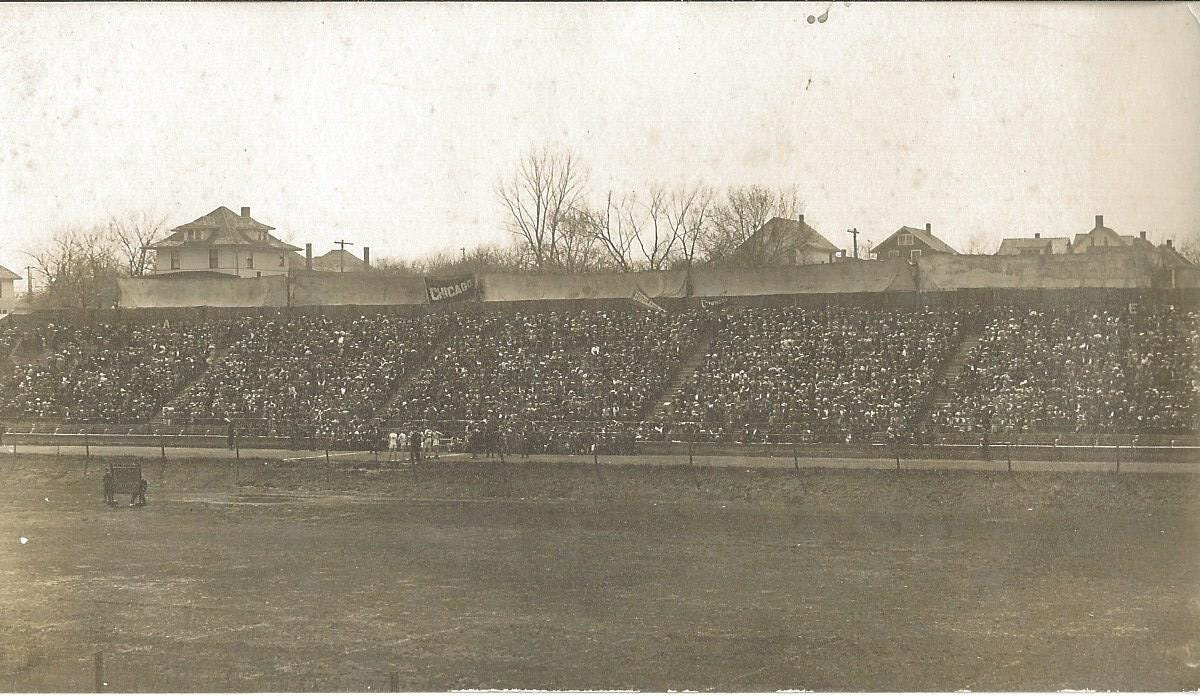Today's Tidbit... The Year of Living Seniorlessly
Discussions of the football crisis of 1905-1906 tend to focus on the rule changes covering play on the field to make the game safer. However, the same general movement also brought concerns about the overemphasis on football, including the game's commercialization, recruiting practices, and eligibility standards.
The predecessor of the NCAA was formed in 1905 to look at the playing rules, but it had no role in player eligibility. Instead, that power rested with the conferences or the individual schools for the independents. Most conferences then focused on shared eligibility standards rather than scheduling, particularly for football.
The Western Conference, now the Big Ten, took the strongest positions on these issues in January 1906. They considered but did not approve a motion to eliminate professional, non-faculty coaches. They also limited the football season to five games, capping varsity eligibility to three years. They intended the three-year rule to eliminate tramp players, who showed up for one season and left, and reduce the pressure on freshmen during their first semester on campus.
Instituting the three-year rule would have been acceptable to all concerned, but they made it retroactive and immediately applicable. That meant freshmen track and baseball athletes were a no-go, and seniors who competed during their first three years were also ineligible for the spring seasons. Likewise, the five-game football season of 1906 would be played only by sophomores and juniors.
Michigan, which expected to dominate the conference track meet with senior talent, was incensed, with the decision being yet another reason for them to leave the conference in 1907.

In the end, cooler heads prevailed, though not in time to save the senior's track and baseball seasons of 1906. The conference decided not to make the three-year retroactive rule for the 1906 football season. Other decisions made that fall included:
Playing seven football games per season rather than five
Applying the three-year eligibility standard to football, track, and baseball
Recommending that football officials not participate in interviews after games
Not allowing freshmen and scrubs (reserves) to play two outside games yearly.
In the end, while track and baseball faced a year of living seniorlessly, football did not. Still, the conference remained conservative, not allowing football scholarships until the early 1960s and limiting postseason play to its Rose Bowl representative until the 1970s.
Football Archaeology is reader-supported. Click here to buy one of my books or otherwise support the site.



